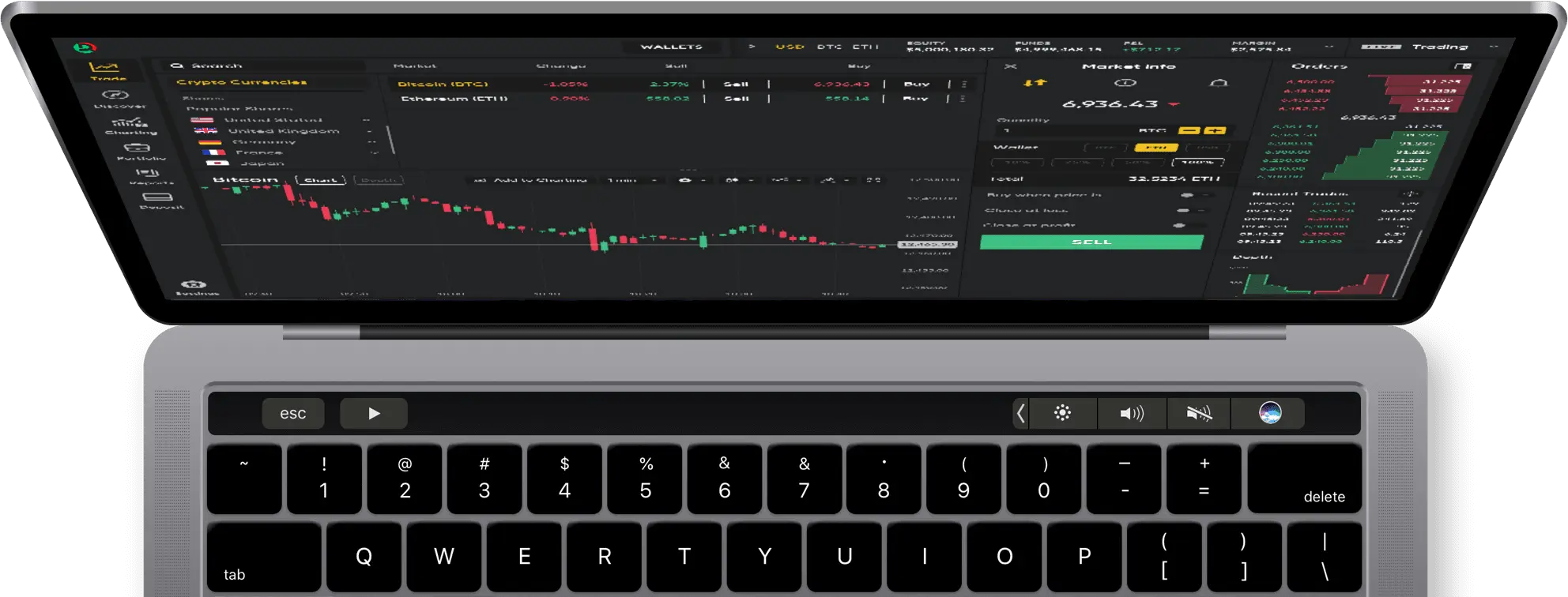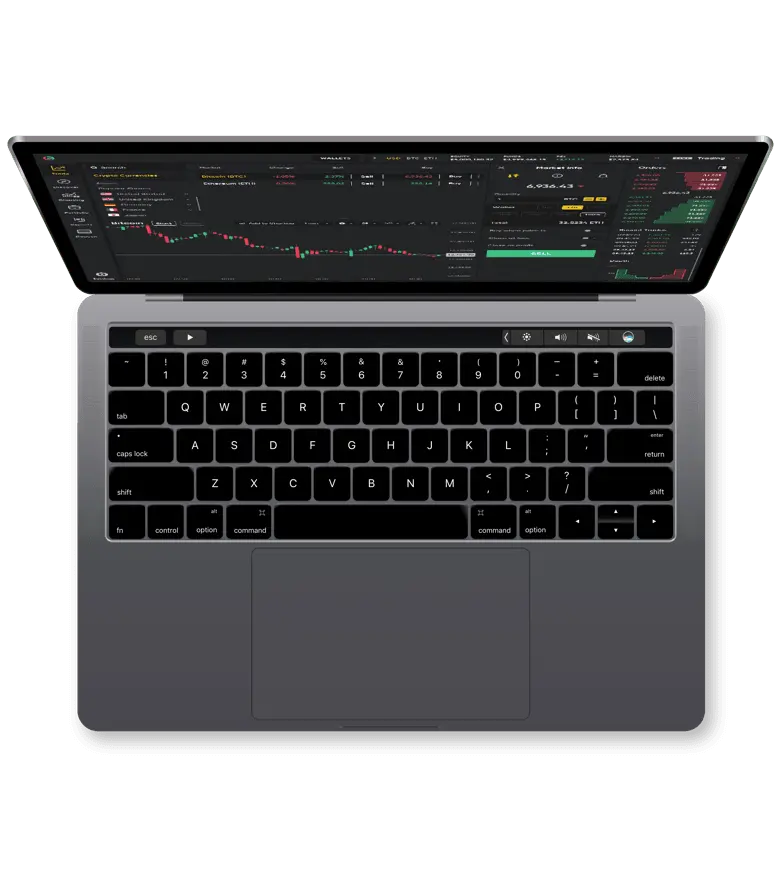Crypto as collateral. Trade the global financial markets using Bitcoin or Ethereum.
Our advanced web platform is the first regulated tokenised assets exchange in Belarus.

Make a move on the price action of the world's biggest companies using tokenised assets.
| Icon | Name* | Sell | Buy | Chart(2d) |
|---|---|---|---|---|
|
TSLA Tesla Inc |
474.97 | 475.08 | ||
|
NVDA NVIDIA Corp |
171.55 | 171.74 | ||
|
TLRY Tilray Inc |
12.71 | 12.89 | ||
|
NFLX Netflix Inc |
95.62 | 95.69 | ||
|
COIN Coinbase Global Inc |
248.52 | 249.14 | ||
|
SPXU ProShares UltraPro Short S&P500 |
52.96 | 53.01 | ||
|
LAZR Luminar Technologies Inc |
0.26 | 0.31 | ||
|
MU Micron Technology Inc |
225.52 | 226.29 | ||
|
UVXY ProShares Ultra VIX Short-Term Futures ETF |
42.73 | 42.91 | ||
|
AMD Advanced Micro Devices Inc |
200.26 | 200.86 | ||
|
PLTR Palantir Technologies Inc |
180.23 | 181.33 | ||
|
INTC Intel Corp |
36.40 | 36.47 | ||
|
TQQQ ProShares UltraPro QQQ |
50.04 | 50.17 | ||
|
LIus Li Auto Inc |
16.10 | 16.31 | ||
|
AAPL Apple Inc |
273.01 | 273.06 | ||
|
GOOGL Alphabet Inc - A |
298.87 | 299.36 | ||
|
MARA Marathon Digital Holdings, Inc |
10.12 | 10.19 | ||
|
LYFT LYFT |
19.47 | 19.70 | ||
|
EPAM EPAM Systems, Inc. |
205.95 | 207.03 | ||
|
HOOD Robinhood Markets Inc |
118.78 | 119.09 | ||
|
CRON Cronos Group Inc. |
3.02 | 3.05 | ||
|
META Meta Platforms Inc |
657.75 | 657.92 | ||
|
NEM Newmont Goldcorp Corporation |
98.64 | 98.95 | ||
|
DBX Dropbox |
29.06 | 29.21 | ||
|
MSFT Microsoft Corp |
478.04 | 478.14 |
Our advanced web platform is the first regulated tokenised assets exchange in Belarus.
Crypto as collateral. Trade the global financial markets using Bitcoin or Ethereum.
Security as priority. The safety of your holdings is guaranteed in accordance with the legislation of the Republic of Belarus.
Technical indicators. Keep an eye on your positions with over 75 advanced charts, price analysis and price alerts.
Control your capital. Use stop-loss and take-profit orders to keep what you earn.
Use the world’s first regulated tokenised assets exchange to build a diverse investment portfolio with your crypto holdings. Make your deposits in Bitcoin or Ethereum to trade global financial instruments with competitive leverage and tight spreads. Dzengi.com keeps your holdings secure and accessible at a glance.
